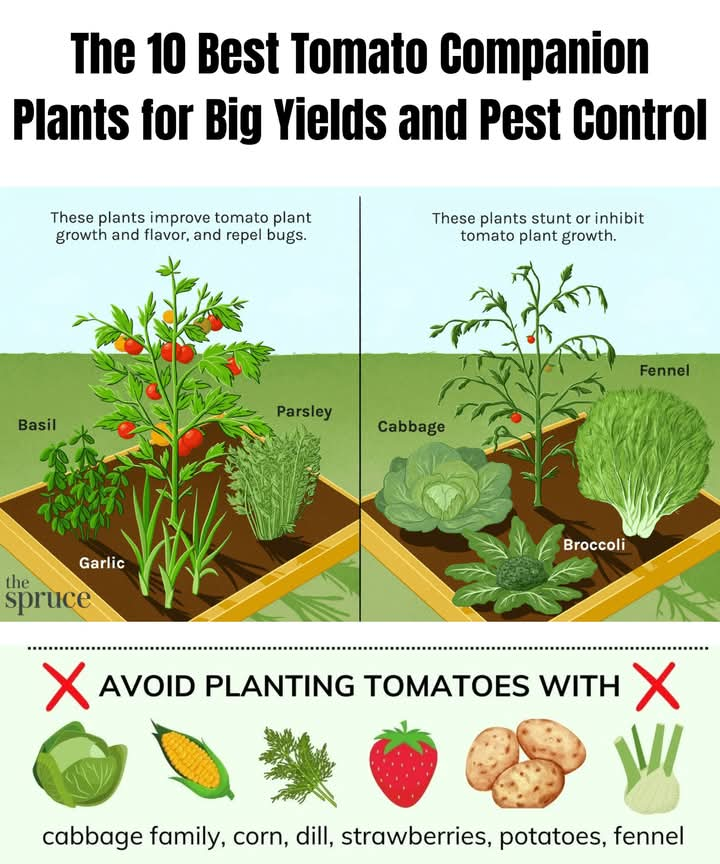Starting an Organic Farm in Nigeria: A Step-by-Step Guide
In recent years, there has been a significant shift towards organic farming globally, and Nigeria is no exception. As consumers become more health-conscious and environmentally aware, the demand for organic produce has skyrocketed.
This offers a unique opportunity for Nigerian entrepreneurs to venture into organic farming and contribute to the country’s growing agricultural sector.
If you’ve been considering starting an organic farm in Nigeria, this step-by-step guide will walk you through the process, providing the essential information to get your farm off the ground and running.
Why Start an Organic Farm in Nigeria?
Before we dive into the steps, it’s important to understand why organic farming is a viable business venture in Nigeria.
Here are some key reasons why you should consider starting an organic farm:
- Rising Demand for Organic Produce: There’s been an increase in the awareness of the health benefits of consuming organic food. Nigerian consumers are becoming more health-conscious, and organic fruits, vegetables, and meats are increasingly sought after.
- Environmental Benefits: Organic farming eliminates the use of harmful pesticides and synthetic fertilizers, contributing to soil health, water conservation, and reducing pollution.
- Government Support: The Nigerian government and various NGOs are keen to support sustainable farming practices, including organic agriculture. You may find grants, subsidies, or other financial support for adopting organic farming methods.
- Profitability: While the initial investment and operational costs can be higher than conventional farming, organic farms often fetch higher prices in the market, thanks to the premium placed on organic produce.
Now that we understand the potential benefits, let’s explore the steps involved in starting your own organic farm in Nigeria.
Step 1: Conduct Market Research
Before diving into any business, especially an agricultural venture, it’s essential to conduct thorough market research. Understanding the demand for organic produce in your target area will help you make informed decisions and set your farm up for success.
What to consider during market research:
- Target Market: Identify your target consumers, which could be urban dwellers, health-conscious individuals, supermarkets, organic food stores, or even local farmers’ markets.
- Competition: Evaluate existing organic farms and their offerings. Determine what gaps exist in the market and how you can differentiate your farm.
- Pricing: Research pricing for organic produce in your area. Organic products typically sell for higher prices, but it’s important to know your margins and ensure you can remain competitive.
- Distribution Channels:
- Explore various distribution channels for your products. Will you sell directly to consumers, or will you partner with organic food stores and wholesalers?
Step 2: Choose Your Farm Location
The location of your organic farm plays a crucial role in its success. In Nigeria, some regions are more suitable for organic farming than others based on climate, soil conditions, and accessibility.
Consider the following when selecting a location:
- Climate and Soil: Research the climate and soil quality in different regions of Nigeria. Regions like South West Nigeria, Middle Belt, and parts of North Central Nigeria have favorable conditions for growing organic crops. Ensure that the land has rich, fertile soil with minimal contamination from pesticides or synthetic fertilizers.
- Accessibility: Choose a location that is accessible for transportation, especially if you plan to sell your produce in urban areas. Good road networks and proximity to markets will be essential for the logistics of your farm.
- Water Availability: Organic farming often requires a steady water supply, especially for irrigated crops. Assess water availability, whether through natural water sources like rivers or by installing irrigation systems.
Step 3: Secure Funding for Your Organic Farm
Starting an organic farm requires investment in land, equipment, seeds, labor, and certification (if applicable). Securing funding is a critical step in ensuring you have the capital needed to establish and operate your farm.
Possible sources of funding include:
- Personal savings: If you have savings, you can start small and scale as you begin to generate income.
- Bank loans: You may consider applying for loans from Nigerian banks that offer funding for agricultural ventures.
- Grants and subsidies: Look out for government grants or financial assistance from NGOs that support organic farming initiatives.
- Crowdfunding: Platforms like GoFundMe or Kickstarter can help raise funds from a large pool of small investors who believe in your project.
Step 4: Prepare Your Farm
Once you have secured the land and funding, it’s time to prepare your farm for planting. The process of preparing an organic farm is slightly different from conventional farming, primarily due to the need to ensure that no chemicals or synthetic fertilizers are used.
Steps for farm preparation:
- Soil Testing: Conduct soil tests to assess the nutrient content and pH of your soil. Organic farming requires balanced soil, and you may need to amend the soil with organic compost or organic fertilizers.
- Land Clearing:
- Prepare the land by clearing it of weeds, rocks, and debris. You can use manual labor or organic methods like mulching to suppress weeds without resorting to herbicides.
- Crop Selection: Choose crops that are suitable for the local climate and soil. Common organic crops in Nigeria include tomatoes, spinach, cabbage, carrots, cucumbers, and maize. If you plan to include livestock, consider free-range poultry or organic goat farming.
- Composting and Fertilization: Establish a composting system to create natural fertilizers for your farm. Organic farming relies heavily on compost to nourish the soil. Consider using animal manure, crop residues, and other organic matter to create compost.
Step 5: Obtain Organic Certification
While organic farming focuses on sustainability and healthy food production, it’s essential to obtain organic certification if you want to access premium markets and prove your commitment to organic practices. Certification ensures that your farm meets international standards for organic production.
In Nigeria, the National Agricultural Extension and Research Liaison Services (NAERLS) provides certification for organic farms. Certification may involve the following steps:
- Application: Submit an application to an authorized certification body, providing detailed information about your farming practices.
- Inspection: An inspector will visit your farm to verify that it follows organic farming guidelines.
- Approval and Labeling: Once certified, your produce can be labeled as organic, helping to attract consumers who are willing to pay a premium for organic products.
Step 6: Implement Sustainable Farming Practices
Sustainability is the core principle of organic farming, and implementing sustainable practices will help your farm thrive in the long term. Here are some key sustainable farming practices to adopt:
- Crop Rotation: Rotate crops each season to prevent soil depletion and reduce the risk of pests and diseases.
- Natural Pest Control: Use natural methods to control pests and diseases, such as introducing beneficial insects (like ladybugs) or using organic pesticides.
- Water Conservation: Implement rainwater harvesting or install efficient irrigation systems to conserve water.
- Soil Preservation: Use mulching, cover cropping, and other soil conservation techniques to maintain soil fertility and prevent erosion.
Step 7: Marketing Your Organic Produce
Now that your organic farm is up and running, it’s time to sell your produce. Building a strong brand and marketing your products effectively is essential to attracting customers and generating sales.
Tips for marketing your organic farm:
- Create a Brand:
- Develop a brand identity for your farm, including a logo, tagline, and clear messaging about your commitment to organic farming.
- Social Media Presence: Use social media platforms like Instagram, Facebook, and Twitter to showcase your farm and engage with customers.
- Farmers’ Markets and Direct Sales: Participate in local farmers’ markets or establish a direct-to-consumer sales model where customers can buy fresh produce directly from your farm.
- Collaborate with Organic Stores: Partner with organic food stores and supermarkets to sell your products in bulk.
- Join Organic Certification Networks: Being part of organic certification networks can increase your farm’s credibility and connect you with potential buyers.
Step 8: Scale Your Farm
Once your organic farm is established, the next step is scaling. Expand your product offerings, increase production, and explore new markets to boost profitability. Consider diversifying into organic meat production or expanding into different organic crops to cater to a wider customer base.
Conclusion
Starting an organic farm in Nigeria presents an exciting opportunity for entrepreneurs who are passionate about sustainable agriculture and health-conscious living. With the right knowledge, planning, and dedication, you can create a profitable and environmentally friendly farming business.
By following these steps—from conducting market research and selecting the right location to implementing sustainable farming practices and marketing your products—you’ll be well on your way to creating a successful organic farm in Nigeria. The future of agriculture is organic, and as consumer demand for healthier, eco-friendly food options continues to rise, your organic farm can be part of a growing and impactful movement toward sustainability.




